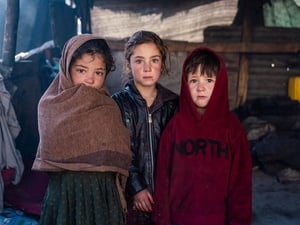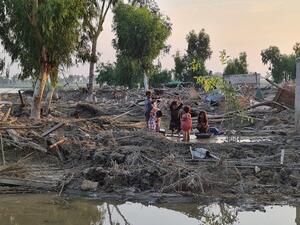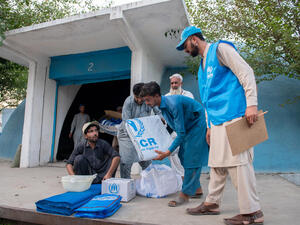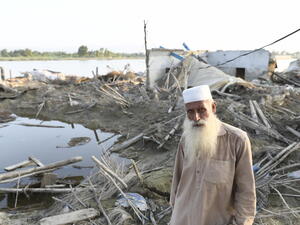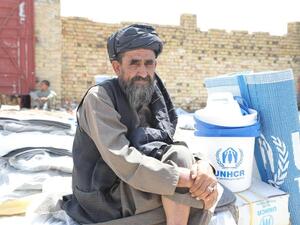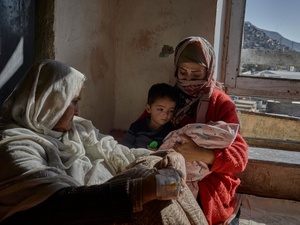UNHCR moves 3,600 Afghan refugees from makeshift border camp
UNHCR moves 3,600 Afghan refugees from makeshift border camp
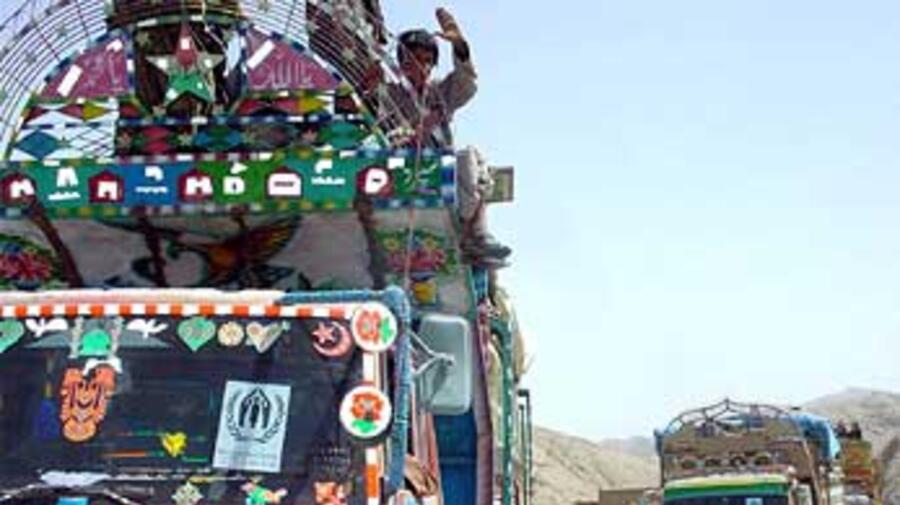
Trucks carrying Afghan refugees leave the Chaman waiting area for Zhare Dasht.
CHAMAN, Pakistan, July 4 (UNHCR) - The UN refugee agency (UNHCR) has relocated 3,651 Afghans to new sites inside Pakistan and Afghanistan during the first five days of an effort to clear a makeshift camp where thousands of asylum seekers had been stranded since early 2002.
Since the start of the operation on Monday, four convoys of trucks hired by UNHCR have carried 2,340 Afghans to the Mohammad Kheil refugee camp where they joined 37,000 other Afghans who have been living there since they fled the U.S.-led war against the Taliban in 2001. Another three UNHCR convoys carried 1,311 Afghans to the settlement of Zhare Dasht near the southern Afghanistan city of Kandahar. The pace of the move will accelerate in the coming days as more vehicles are made available.
UNHCR and the governments of Pakistan and Afghanistan agreed last May on a plan to empty the squalid "waiting area," just inside Pakistan's border with Afghanistan, where an estimated 20,000 Afghans had been camping for months on end without proper security or sanitation and with only limited aid.
Last month, almost all residents of the "waiting area" signed up to move out. Some 58 percent of the 18,685 people chose to go to Zhare Dasht settlement west of Kandahar, and the rest to Mohammad Kheil camp in Pakistan.
The "waiting area" makeshift camp was first created by Afghan asylum seekers when Pakistan closed its borders to new refugee arrivals in February 2002. However, the site located along a smuggling route was always considered unsuitable for a refugee camp. Last month, bodies of 22 fighters killed nearby in a battle with Afghan government troops were dumped in the centre of the refugee settlement in a grim reminder of the area's fragile security.
In addition, Pakistani authorities, anxious to prevent the area from becoming a permanent village, would not let aid workers provide more than basic humanitarian aid such as food and water. Aside from a few UNHCR tarpaulins distributed to emergency cases a year ago, the refugees lived under ragged home-made tents.
The UNHCR convoys will continue until all those requesting to move to the alternative sites have been relocated. But the agency has warned residents that once the move is completed, it will no longer assist those remaining in the "waiting area."


